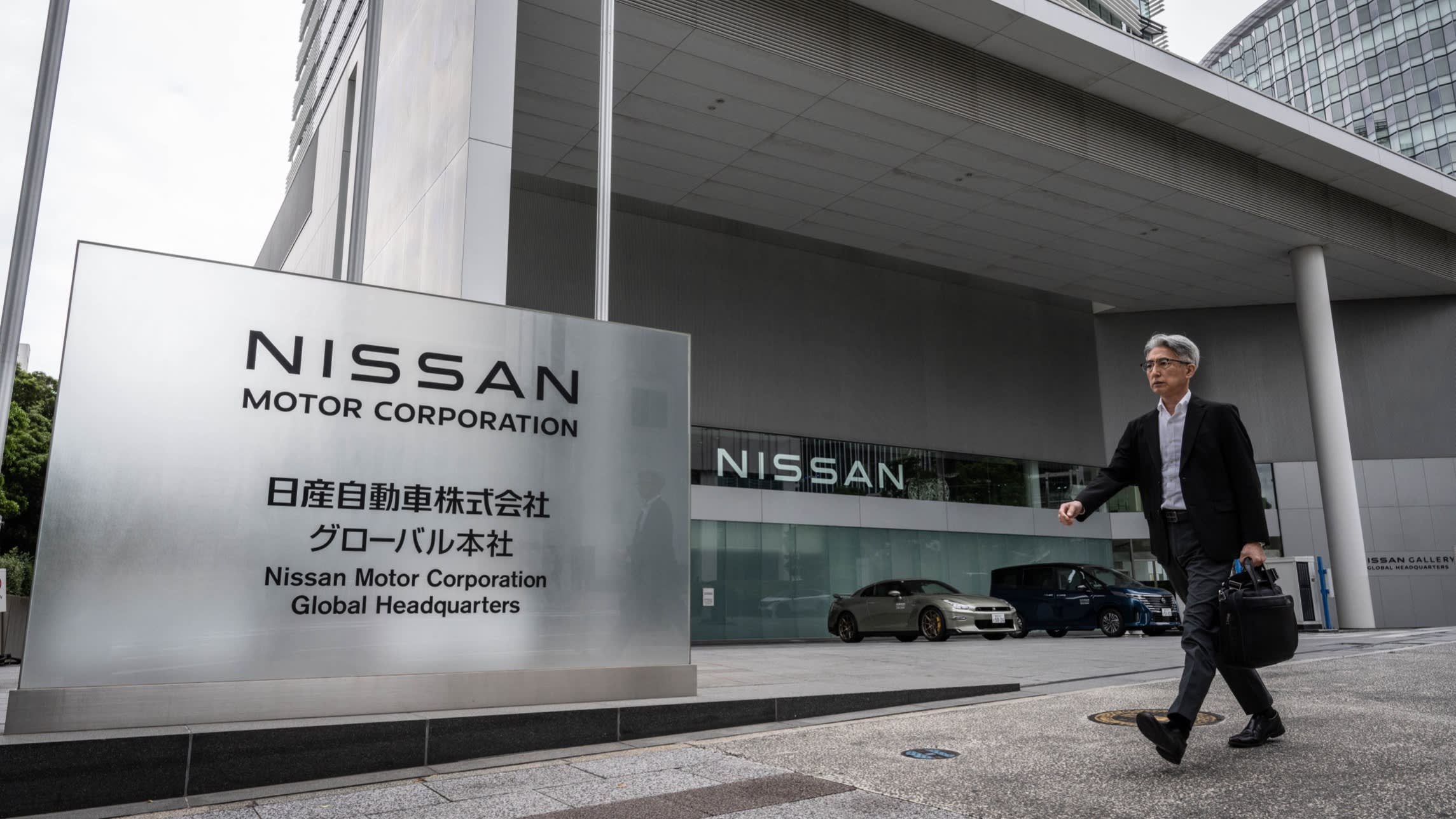
Unlock the Editor’s Digest for free
Roula Khalaf, Editor of the FT, selects her favourite stories in this weekly newsletter.
Nissan has warned of its biggest annual loss of up to ¥750bn ($5.3bn) on the back of higher than expected restructuring costs as the ailing Japanese carmaker faces a new frontier of financial pressures from US President Donald Trump’s tariff war.
The sharp cut to its guidance came as Nissan slashes global production capacity and its workforce to stem a financial crisis caused by free-falling sales of its vehicles.
The company on Thursday said it now expected a net loss of ¥700bn to ¥750bn compared with its earlier forecast for a loss of ¥80bn. It also revised its revenue forecast to ¥1.25tn from ¥1.26tn. The company blamed the lower guidance on “changes in the competitive environment and deterioration in sales performance”.
“We now anticipate a significant net loss for the year, due primarily to a major asset impairment and restructuring costs as we continue to stabilise the company,” said Ivan Espinosa, the newly appointed chief executive.
The losses will pile pressure on Nissan to accelerate its search for a partner after merger talks with Honda collapsed earlier this year. Taiwan-based iPhone supplier Foxconn has expressed interest in partnering with Japanese car groups, including Nissan.
An asset review led to writedowns exceeding ¥500bn across North America, Latin America, Europe and Japan, the company said.
Nissan stressed it had about ¥1.5tn in net cash as of the end of March amid rising investor concerns about the company’s balance sheet.
In addition to weak sales, Nissan’s share price has declined 31 per cent this year as it faces new challenges from the 25 per cent tariffs the US has imposed on all imports of foreign-made vehicles.
Nissan produces a large volume of vehicles in Mexico and its precarious financial position makes it one of the most vulnerable global carmakers to the financial hit from Trump’s levies.
The group unveiled a restructuring plan in November under previous chief executive Makoto Uchida that involved cutting 9,000 roles and 20 per cent of production capacity, but the plan was denounced by analysts as insufficient to turn around the company.
In a press conference earlier this week, Takaki Nakanishi, a veteran auto analyst, said the lack of exceptional costs had meant the turnaround plan was “not a real plan”.
He warned Nissan’s line-up of vehicles — sales fell from 5.5mn in 2018 to 3.35mn in the latest forecast — would not be improved until 2028 at the earliest.
He pinned the company’s woes on “Nissan re-Japanising” after Carlos Ghosn departed in 2019 and “repeating their mistakes again”, including an unwinding of its alliance with Renault, despite sounding a note of optimism at the speed of decisions under the new management team led by Espinosa.
In one of its latest steps to cut costs, Nissan on Thursday said it would halt plans to build two electric sedan models in the US because of changes in industry market conditions.
“We have made the decision to cancel development of the fully electric sedan projects and to reassess them as part of a new vehicle programme,” it said.
Nissan has also recently said it would not take any new US orders of two models from its Infiniti luxury range built in Mexico. It also plans to maintain two shifts at a production line on its Smyrna plant in Tennessee, having earlier said it would go down to one shift to save costs.


